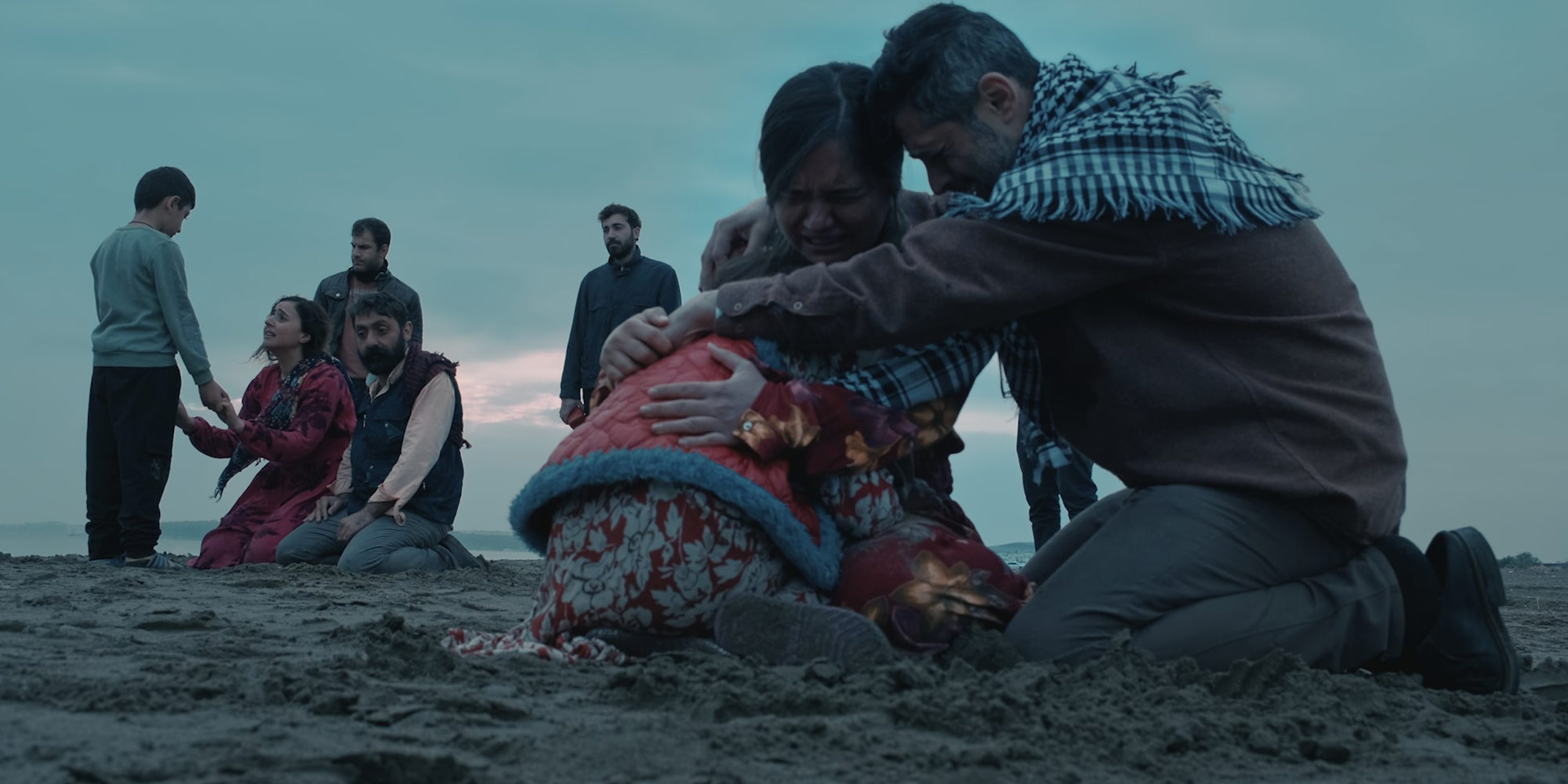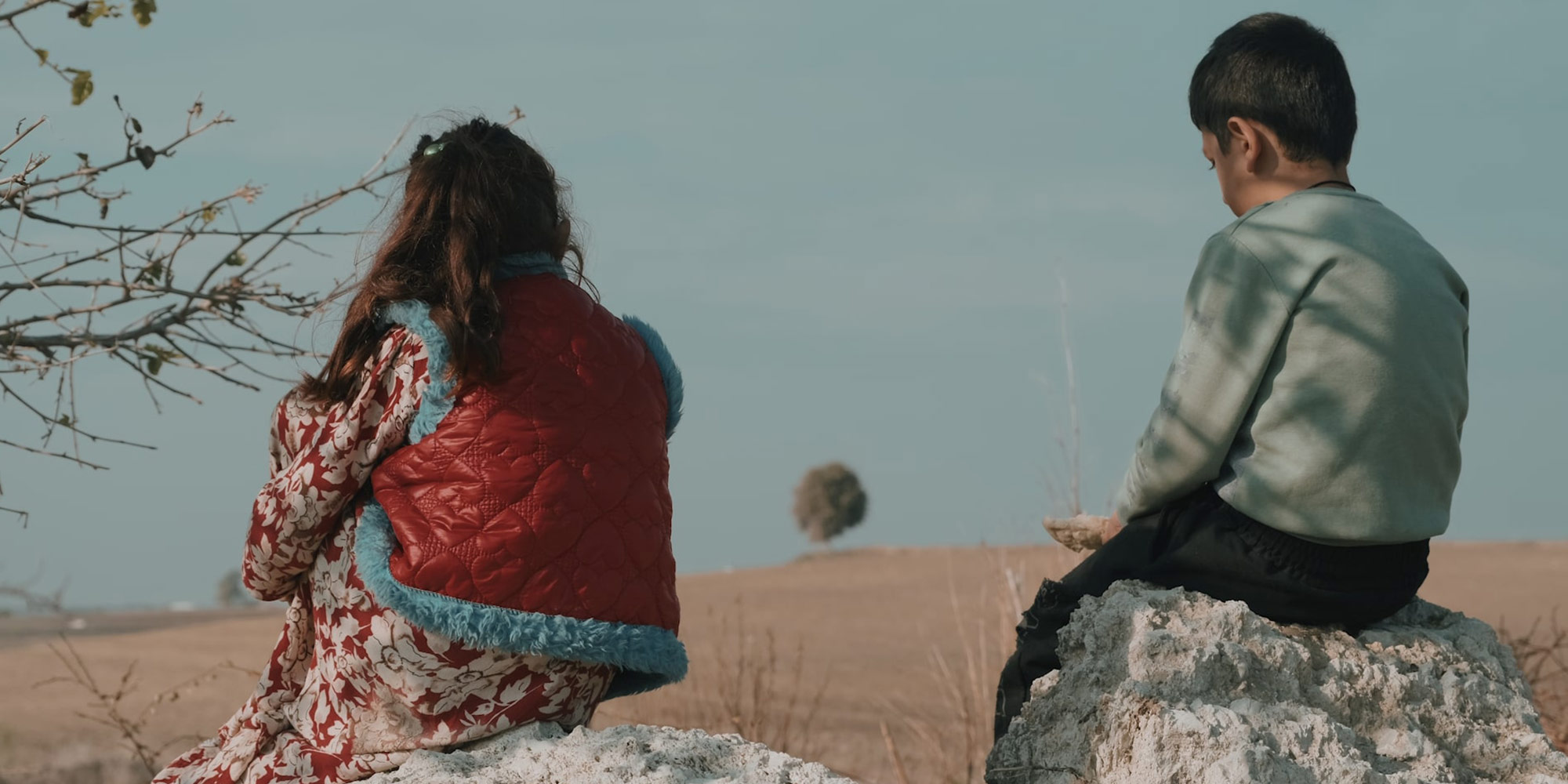“In this captivating portrayal of desperation and ethnicised tension between local Kurdish workers and Syrian refugees in a Turkish camp. Ümit Güç’s film delves into labor, identities and immigration, reflecting his personal experiences growing up in the border region of Hatay. He confronts the oppressive nature of political power, nationalism and question of identity in his film, portraying anger and tension between local workers and Syrian refugees in a tent camp. The disappearance of two children serves as a catalyst, leading both groups to embark on a search that transcends their differences and unites them in a common quest for human values, where they find their externally-imposed national identifications blurred or even inverted. The director’s personal experiences, including the tragedy and urgency faced during the recent earthquake add dept and authenticity to the narrative. It is a work about resilience and shared humanity in individuals in the face of adversity.”
Jury Statement
Focusing on the anger that local agricultural workers feel toward refugees, Footprints of Ants portrays the story of Syrian refugee workers and local agricultural workers who live in the same tent camp. One day, two children, Barış and Evin, who know nothing of this heated anger driven by poverty, disappear. Locals and refugee workers search for the children. While conducting this search, for a moment, they share the same emotions and the search for children evolves into a search for human values.
The film has four parts: the first is “Pain,” which demonstrates the connection between a woman’s suffering and childbirth. “Journey” asks, why journey? The journey that takes place in the film is a representation of a trip to the fields to seek labor and make money. The metaphor of people and other living beings moving constantly leads us to think of groups that have had to relocate from past and present. The third part is called “Search” asks what exactly the characters, who have left their previous homelands or geography, are in search of. And finally, “Ricat,” which in Arabic military tactics means “withdrawal.” Here, the director reflects on the cycle of life and people’s inward withdrawal and attempt to nurture their lives, not as a military tactic but as part of life itself.
Ümit Güç
Ümit Güç was born in 1989 in Antakya. He graduated from the department of Radio, TV and Cinema at Cukurova University in Adana. His first short film *Who Built the Stone Bridge?* (2018) and his second film *Feets of Earth* (2020) were award-winning finalists at national and international festivals. His third short film *Footprints of Ants* received the mansion award from CA’ FOSCARI Short Film Festival.
Güç’s practice is based on transforming the social and political impact on societies. Labor, identities and immigration have always been at the heart of his films. Güç deals with the oppressive nature of political power, nationalism, the nation state and questions of identity through subjects he chooses from childhood experiences in Antakya/Hatay and the surrounding region.
Güç is also one of the co-founders of Karaçay Coordination, which created and still practices the ongoing solidarity from its early days at the time of the February 6 earthquakes that hit the southeast of Turkey and the northeast of Syria.
Written and directed by: Ümit Güç
Cast: Evin: Gurbet Kancak, Barış: Mahir Aslan, Selma: Fatma Zalim, Delal: Filiz Karadağlı Khaled: Khaled Dikko, Süleyman: Süleyman Bolat, Ercan Ertik, İsmail Emre Halvacı, Serdinç Çağlayan, Zeynep Arslan, Rabia Kancak, İbrahim Kancak, Bahçeköy ve Çadır Halkı
Assistant Director: Arzu Görgülü
Director of photography: Necati Öz
Art director: Esra Fidantek
Sound: Tuncay Ayvaz
Camera: Cihan Kar
Crew: Görkem Yazgan, İlker Cengiz Gül, Mahsun Tosun, Fırat Yetişgin, Orhan Sayın


